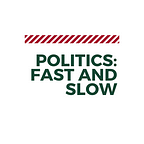Rebuilding A Broken Union
Brexit has exposed existential threats to the EU. President Macron and Chancellor Merkel have warned that, if the organisation cannot reform itself soon, then it will fall apart. How then, should the union go forward?
Many people within the upper echelons of the EU wish to formalise the idea that there are different “levels” of membership. This is due to the fact that many member states have sought and attained opt-outs from EU laws surrounding security and the common currency, the euro.
The UK is one of these countries, which is a member (for now), but always floats around the edges of the union, gaining opt-outs almost whenever it wants to. However, this pushed Britain to the edge and led to Brexit, with a sense of superiority to our European counterparts emerging.
However, if the idea of an “outsider” relationship could be formalised, then there would likely be overwhelming support for Britain staying in the EU. This will also help to prevent future exits from the European Union, with many countries such as Ireland and Denmark opposing the move towards an almost federalist European project.
In addition, a formal, tiered system could help to draw in those European states that do not wish to join the EU at the moment, such as Switzerland. This would bolster the trade bloc and help to increase the size of the single market and free trade within Europe, without losing sovereignty.
There are a few different ideas for how exactly this should be done.
One of these, and the most prominent, is to have three different tiers of membership:
- An inner circle, consisting of the member states most committed to the project. These states would be part of the borderless Schengen Area, the Eurozone, and would be subject to every law passed by the European Parliament. They would take the part in European elections, and be represented.
- A middle-ground, consisting of the member states, like the UK, Ireland, and Denmark, who want to have free trade but don’t want to be party to most rules of the EU. They would have a loose relationship but still be part of the EU.
